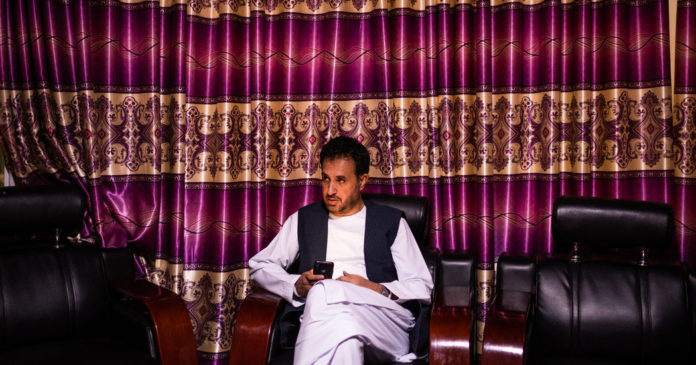“Man,” Mr. Khalid asked with a smile, “if Mr. Karzai comes, then what will be left for you and me?”
Mr. Khalid is a product of Afghanistan’s history of turmoil over the past four decades, thrust into a life of weapons, money and secretive missions from a young age.
His father was a member of Parliament from Ghazni Province during the Afghan monarchy. When Asadullah was in the 10th grade in the 1980s, he and three of his classmates from their Kabul school were jailed by the Communist regime for involvement with parties seeking to overthrow the government.
His father negotiated his release. Agents delivered him to the office of the country’s intelligence chief — the same office Mr. Khalid would occupy decades later. With Mr. Khalid’s father sitting across his desk, the head of intelligence and the future president, Mohammad Najibullah, whom Mr. Khalid would help the mujahedeen rebels overthrow, told Asadullah he was free.
“What about my friends?” Mr. Khalid remembers asking.
As Mr. Najibullah wrote down the names of his friends and promised their release, Mr. Khalid noticed the spy chief was writing with a pencil. He pointed that out. “I was a stubborn young man,” he said.
Soon after his release, Mr. Khalid joined the Islamist resistance, which operated out of Pakistan. He and his family opposed the Communist government, but he says they were not cut out for the ideology that bound the resistance. After his uncle, who was leading a tribal militia that was part of the resistance, was killed, the tribe chose Mr. Khalid, still in his teens, to be their leader.
Over the years, he became one of the most trusted lieutenants of Abdul Rab Rasoul Sayyaf, a hard-core Islamist closely allied with the Arab contingent that would later be led by Osama bin Laden. Mr. Khalid served as Mr. Sayyaf’s liaison with foreign countries and often handled his money.
Source : Nytimes








-218x150.jpg)



